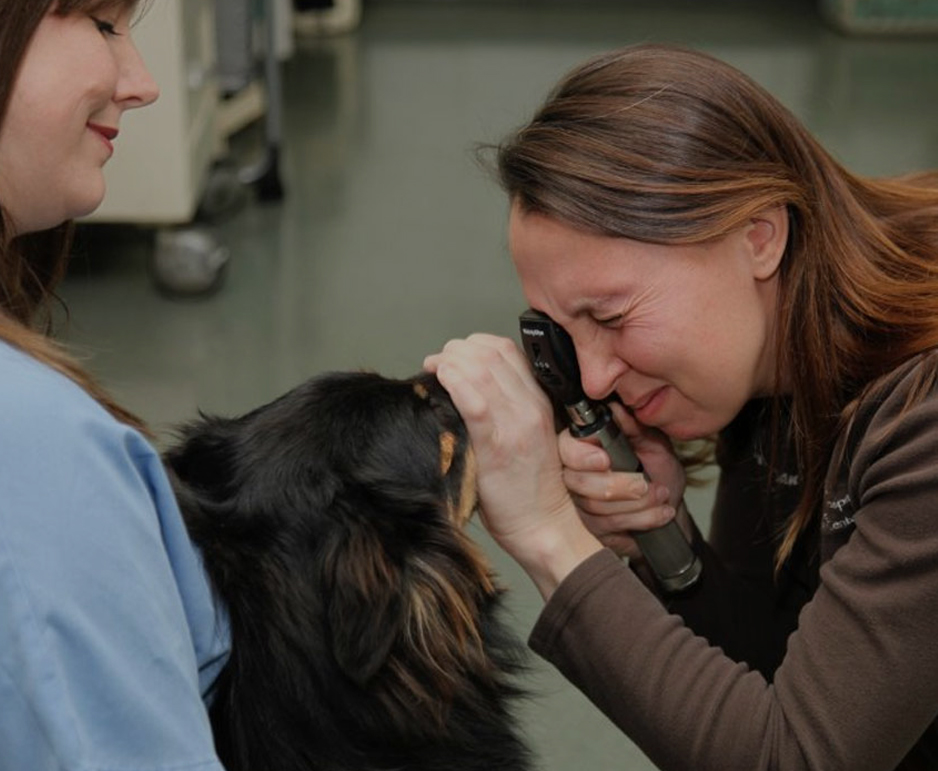If your pet is seriously injured or ill, please contact us as soon as possible at (937) 667-8489

 Emergency
Emergency
As much as we love seeing your pets, as animal lovers, we hope that we won’t need to see them beyond regularly-scheduled appointments and that your pet continues enjoying a healthy life for years to come. However, unexpected incidents can and do occur, and it is important to be prepared. Please review the information below for guidance on navigating an emergency situation with your pet.
- Troubled or not breathing
- Weak heartbeat or pulse
- Extreme lethargy or trouble standing
- Extreme vomiting and/or diarrhea, especially involving blood
- Loss of consciousness; unable to awaken
- Seizures
- Broken bones or open wounds
- Excessive bleeding or blood in eyes, ears, nose, or urine/stool
Learn more about emergency situations from the ASPCA and AAHA.
During Hours
If you are experiencing an emergency with your pet during our normal business hours, a member of our medical staff will help you assess the situation and determine the severity of your pet’s condition. Based on our existing emergency care caseload, we may recommend that you come to our location for care or may refer you to a local emergency hospital. Please contact us right away at 937-667-8489.
After Hours
We do not currently offer after hours emergency services. Thankfully, the Dayton area has three excellent emergency facilities. For after hours emergency needs, we recommend MedVet Dayton, Care Center, and AcutePet Urgent Care Beavercreek. These veterinary professionals provide excellent care, and we trust them with our own pets’ emergency and speciality needs. They will provide a written report to us within a short period after your visit, keeping us informed of what is needed.
Resources for After-Hours Emergency Care
If your pet is seriously injured or ill after-hours, please contact or visit one of the two emergency animal hospitals in the Dayton area:
MedVet Dayton
2714 Springboro West Road, Moraine, OH 45439
Click for Driving Directions
Phone: (937) 293-2714
http://www.medvetforpets.com/
Dayton Care Center
6405 Clyo Road, Centerville, OH 45459
Click for Driving Directions
Phone: (937) 428-0911
http://www.carecentervets.com/
AcutePet Urgent Care Beavercreek
3899 Indian Ripple Road, Suite C, Beavercreek, Ohio 45440
Click for Driving Directions
Phone: (937) 595-2480
https://acutepeturgentcare.com/
Restraining an Injured Pet
No matter how gentle your pet may be on a normal basis, it is always safe to assume he or she has the potential to bite or become aggressive when severely injured, in pain, or frightened. You should always be prepared and take the proper precautions to keep both you and your pet safe.
It is best to always wrap your injured pet in some kind of blanket or fabric to keep them confined when hurt or scared. For larger animals, place an arm around their neck and another arm around their chest, pulling them closely against your body. This keeps them from flailing about and gives you control in case things get out of hand.
If you suspect your dog may bite or become aggressive, or if you must handle them while they are frightened or in pain, you should always use a muzzle. If you do not own a muzzle, you can make a substitute using tape, gauze, cloth, a leash, or other fabric. Follow the steps below:
- Using the material you have, make a large loop over the dog’s muzzle.
- Tighten the loop by crossing the ends underneath the muzzle.
- Bring the ends behind the ears and tie snuggly.
It is important to remember to never muzzle a dog if it is vomiting, coughing, having difficulty breathing, or is unconscious.
Transporting an Injured Pet
If your pet is injured, and you need to transport them to an animal hospital, near or far, it is best to do so in the safest manner possible.
Small animals should be transported in a large box or pet carrier or wrapped in a large blanket.
Large animals that may have a possible back or head injury can be transported on a large piece of plywood or heavy cardboard. Use duct tape or rope to secure the dog to the board at the shoulders and in front of the hips.
No matter their size, confining is key when it comes to transporting an injured pet. For more information, see these tips for handling an injured pet from the American Veterinary Medical Association.
Poison Control
If you suspect that your pet may have ingested a toxic substance, call us right away at (937) 818-4099. If it is outside our normal office hours, contact the ASPCA Animal Poison Control Center at (888) 426-4435. The ASPCA Animal Poison Control Center is available 24 hours a day, 365 days a year, and offers consultations and other emergency services.
Common household pet toxins include:
- Xylitol (found in gum, candy, and toothpaste)
- Alcohol
- Chocolate
- Garlic, Onions, Chives
- Grapes, Raisins
- Bleach, other household cleaning liquids
- Human medications
- Some household plants
If you believe your pet has ingested something potentially poisonous, seek help right away.

